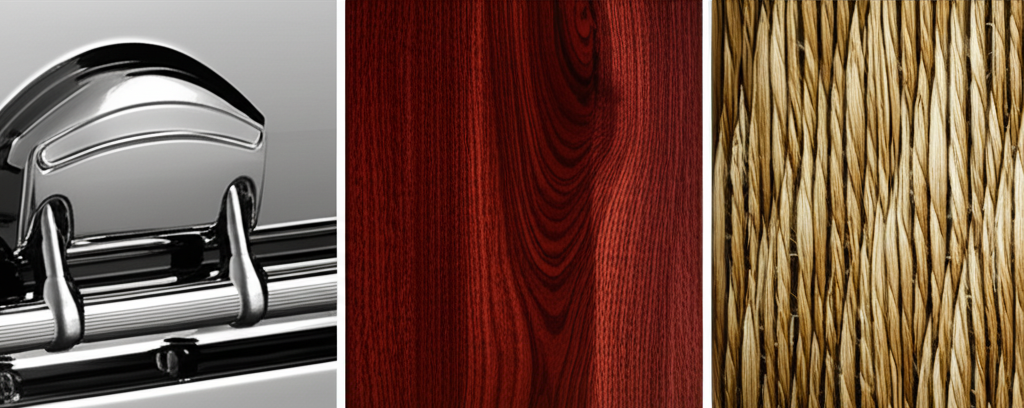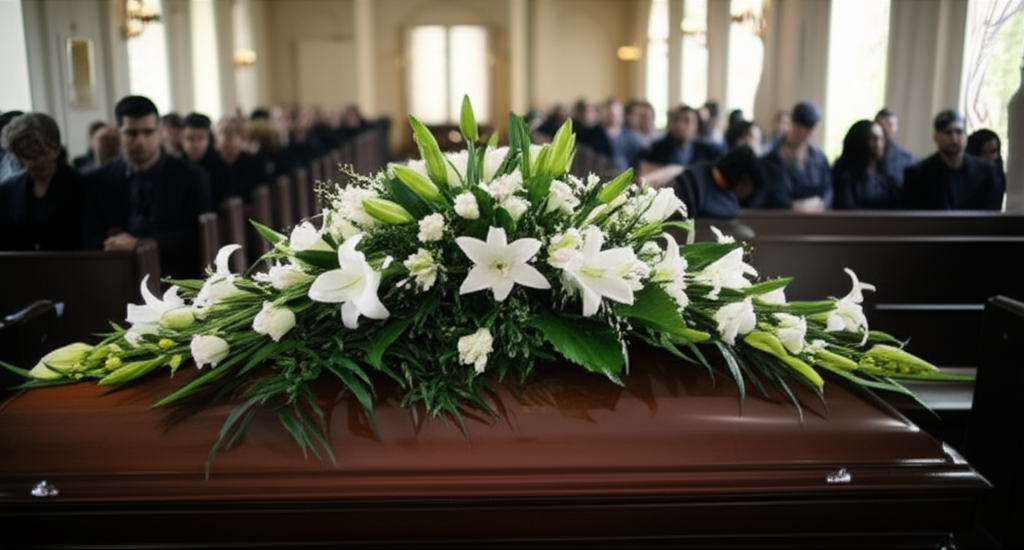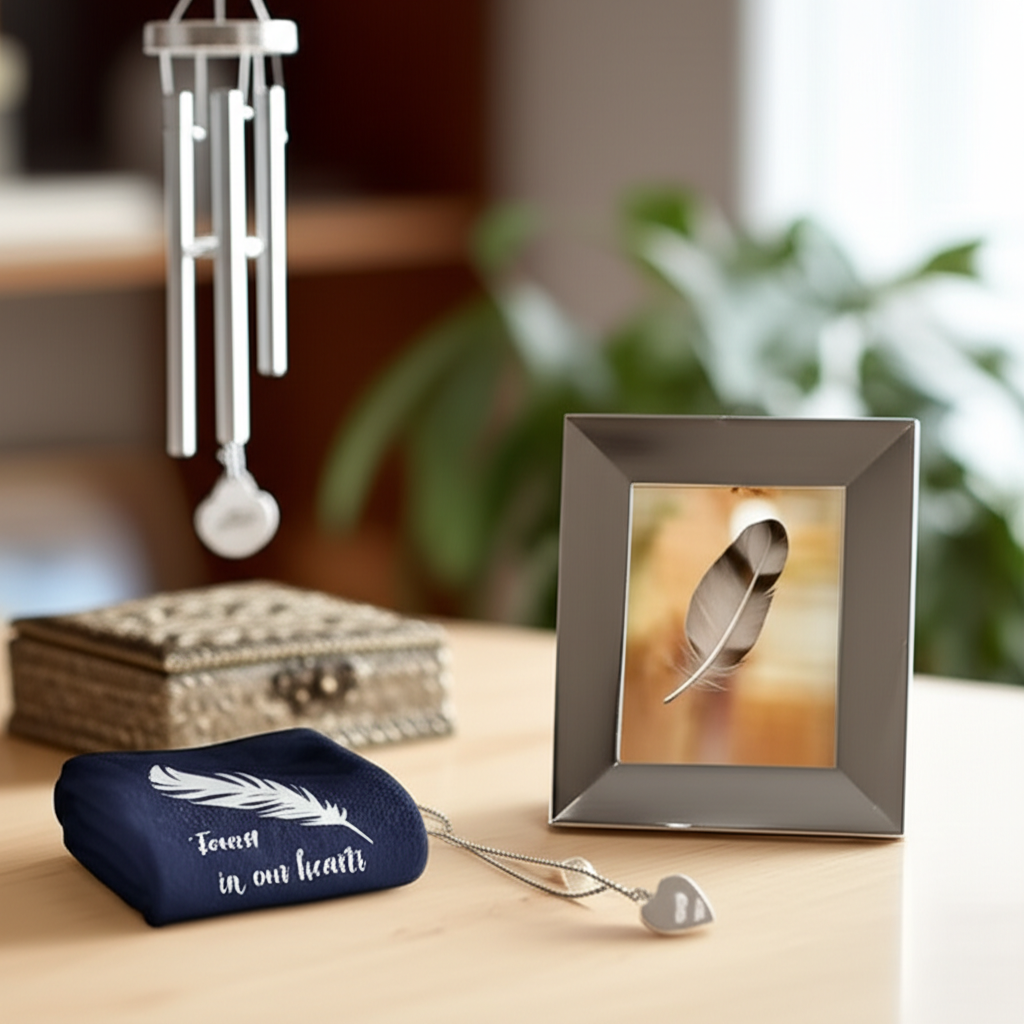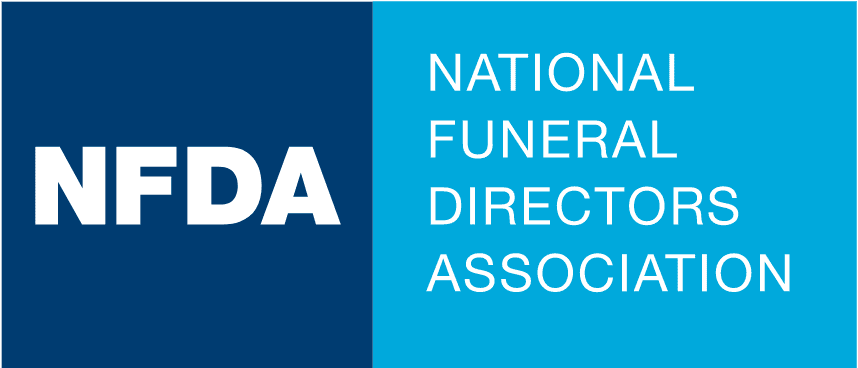Choosing a Casket: A Complete Guide to Styles, Materials, and Costs
Choosing a casket is one of the most significant decisions a family makes when arranging a funeral. It is a deeply personal choice that serves as a final tribute to a loved one. With a vast array of styles, materials, and price points available, the selection process can feel overwhelming during an already emotional time. This guide is designed to provide clarity and support, helping you understand your options so you can make an informed decision that honors your loved one and aligns with your family's wishes and budget.
Navigating Your Casket Options: A Step-by-Step Choosing Guide
Making this important decision involves a series of considerations. Taking a step-by-step approach can simplify the process, ensuring that the final choice is a fitting one. The compassionate professionals at Oliveira Funeral Homes are here to guide you through each of these steps, offering expertise and support to help you navigate your options with confidence.
Key Considerations in Your Funeral Planning Casket Decisions
The first step is to reflect on the person you are honoring. What were their tastes, values, and personality? A casket can be a reflection of their life. A simple, understated design might be perfect for someone who appreciated minimalism, while an ornate wooden casket could honor a person who loved classic craftsmanship. Considering these personal elements ensures the casket is a meaningful part of the final tribute. Making these choices is often easier when you plan ahead , which can relieve your family of difficult decisions during a time of grief.
Determining Your Budget and Understanding Cemetery Requirements
Establishing a budget early on is a crucial and practical step. Casket prices vary widely, and having a clear budget helps narrow down the options and prevent financial strain. It is also essential to contact the cemetery to inquire about any specific requirements. Many cemeteries mandate the use of a burial vault or outer container to protect the casket and prevent the ground from settling over time. Understanding these regulations beforehand will ensure the casket you select is compliant.

How the Type of Service Influences Your Casket Choice
The nature of the final arrangements will significantly influence your casket selection. The requirements for a traditional burial are very different from those for a cremation or a green burial.
- Traditional Burial: For traditional services involving in-ground burial, a durable casket made of metal or wood is typically chosen.
- Cremation: If the plan includes a viewing or funeral service before cremation, you might select a cremation-friendly casket made of combustible materials or opt for a rental casket. For direct cremation, a simple, functional container is all that is required.
- Green Burial: For an eco-friendly burial, the casket must be made from biodegradable and sustainably sourced materials, such as bamboo, wicker, or untreated pine.
Understanding Casket Pricing and How to Find Affordable Options
Navigating the cost of a casket is a primary concern for many families. Understanding what drives the price and knowing where to find affordable options can help you make a choice that is both respectful and financially manageable.
How Much Does the Average Casket Cost in 2025?
In 2025, the average cost of a casket typically falls between $2,000 and $5,000. However, the price spectrum is broad. Simple, functional options can be found for under $1,000, while high-end caskets crafted from premium materials like bronze or mahogany can exceed $10,000.
What are the Main Factors Affecting Casket Cost?
Several key factors determine the final price of a casket:
- Material: The primary cost driver. Bronze and copper are the most expensive metals, while 20-gauge steel is more affordable. For wood, hardwoods like mahogany are premium, while softwoods like pine are more economical.
- Craftsmanship and Design: Intricate details, ornate hardware, and custom designs will increase the price.
- Interior Fabric: Luxurious linings like velvet cost more than standard options like crepe.
- Sealing Features: Metal caskets with a rubber gasket seal are generally more expensive than non-sealing models.
- Size: Oversized caskets require more material and craftsmanship, which adds to the cost.
Pros and Cons of Buying a Casket from a Funeral Home vs. Online
While online retailers may offer lower prices due to less overhead, purchasing a casket from a trusted funeral home provides significant advantages. At Oliveira Funeral Homes, we offer a carefully selected range of quality caskets and provide professional guidance to ensure your choice meets all cemetery and service requirements. This convenience, combined with the assurance that the casket will be delivered on time and handled with care, provides invaluable peace of mind. Under the FTC's Funeral Rule, you have the right to purchase a casket from an outside vendor, and funeral homes are required to accept it without charging additional fees.
What Are the Most Inexpensive Caskets for Burial and Cremation?
For families on a tighter budget, several affordable options are available. For burials, 20-gauge steel caskets and simple pine caskets offer a dignified and cost-effective choice. Cloth-covered caskets, made from fiberboard and covered in fabric, are also an economical option. For cremation services , a basic cardboard container is the most inexpensive choice, while a rental casket for the viewing is a popular way to save money.
Where to Buy a Casket for the Best Price and Selection
Caskets can be purchased from several sources, including funeral homes, online retailers, and even large stores like Costco. While online sellers offer a wide selection, a funeral home provides the expertise to help you make the most appropriate choice for your specific needs. The team at Oliveira Funeral Homes can show you a range of options that fit your budget and aesthetic preferences, ensuring a seamless and supportive experience.
A Detailed Casket Materials Comparison: Pros, Cons, and Durability
The material of a casket affects its appearance, durability, and cost. From the strength of metal to the warmth of wood, each material offers unique qualities.
Why Choose Metal Caskets? A Look at Steel, Stainless Steel, Bronze, and Copper
Metal caskets are known for their strength, durability, and protective qualities. Steel caskets are categorized by gauge (thickness); a lower number means thicker steel (16-gauge is thickest, 20-gauge is thinnest). Stainless steel offers enhanced rust and corrosion resistance. Bronze and Copper are non-rusting, premium materials prized for their beauty and extreme longevity, making them among the most durable and expensive options available.
What is the Best Casket Material for Longevity and Appearance?
For maximum longevity, bronze and copper are the superior choices due to their natural resistance to corrosion. They develop a beautiful patina over time. In terms of appearance, the "best" material is a matter of personal taste. Some prefer the sleek, polished look of metal, while others are drawn to the natural grain and rich color of a handcrafted wooden casket.
Exploring the Warmth and Beauty of Wooden Caskets Styles
Wooden caskets offer a timeless, natural aesthetic. They are often chosen for their warmth and elegance. Each wood species has a unique grain pattern and color, from the deep reddish-brown of mahogany to the classic, sturdy look of oak. Wooden caskets are available in a variety of finishes, ranging from a high gloss to a soft matte.
Hardwood vs. Softwood Caskets: What’s the Real Difference?
The primary differences are durability and cost. Hardwoods like mahogany, cherry, walnut, and oak come from slow-growing trees, making them dense, durable, and more expensive. They are prized for their rich color and beautiful grain. Softwoods like pine, poplar, and willow are more affordable and lighter in weight. They offer a simple, natural beauty and are often used for eco-friendly caskets.
Are Eco-Friendly and Biodegradable Caskets the Right Choice for a Green Burial?
Yes, for a green burial, a biodegradable casket is essential. These caskets are crafted from sustainable materials like bamboo, wicker, seagrass, or untreated wood. They contain no metal hardware or chemical finishes, allowing them to break down naturally and return to the earth with minimal environmental impact.
What You Need to Know About Fiberglass, Polymer, and Cloth-Covered Caskets
These materials provide alternative options, often at a lower price point. Fiberglass and polymer caskets are lightweight, durable, and can be molded to mimic the look of wood or metal. Cloth-covered caskets are typically made of fiberboard or cardboard covered in a soft fabric, offering a simple and economical choice.
Different Casket Styles Explained: From Lids to Linings
Beyond the material, the style and features of a casket contribute to its overall appearance and function.
What Is the Difference Between a Half-Couch and Full-Couch Casket?
The distinction is in the lid design. A half-couch casket has a two-piece lid that is hinged in the middle. For a viewing, only the top half is opened, showing the deceased from the waist up. This is the most popular style in the United States. A full-couch casket has a single-piece lid that opens as one unit, allowing the entire body to be viewed.
How to Choose Interior Fabrics Like Velvet, Satin, and Crepe
The interior lining adds a finishing touch. Velvet has a thick, soft pile and a rich texture, often used in higher-end caskets. Satin has a smooth, glossy finish that is very elegant. Crepe is a soft, woven fabric with a crinkled texture, offering a graceful appearance and is often the most budget-friendly option.
Understanding Casket Sealing Options and If They Are Necessary
Many metal caskets are "gasketed," meaning they have a rubber seal that runs along the inside of the lid to create an airtight closure. This is designed to protect the casket's contents from external elements like water and soil. However, it's important to understand that a sealed casket does not prevent or slow down natural decomposition. These seals are not required by law.
A Guide to Standard Casket Sizes and When to Consider an Oversized Casket
Standard adult caskets are designed to accommodate most individuals, typically measuring about 24-27 inches wide inside. For taller or larger individuals, oversized caskets are available. These caskets offer additional width, ranging from 28 to over 50 inches, ensuring a comfortable and dignified fit.
How to Select Personalized Casket Options and Custom Designs
Personalization allows you to create a truly unique tribute that celebrates the life and passions of your loved one.
From Simple Casket Options to Ornate Casket Designs: Finding the Right Aesthetic
The aesthetic of a casket can range from simple and dignified to highly ornate. A simple pine box might be perfect for a lover of nature, while a polished mahogany casket with intricate hardware could honor someone with traditional tastes. The choice of aesthetic is a personal one that should reflect the individual being remembered.
What Custom Casket Designs Are Available for Personalization?
Modern personalization options are nearly limitless. Caskets can be painted or wrapped in vinyl with custom images, such as a favorite landscape, a photo collage, or the logo of a beloved sports team. The possibilities allow for a final tribute that is as unique as the life it honors.
How Engravings, Embroidered Panels, and Hardware Choices Create a Unique Tribute
Smaller details can have a big impact. An engraved nameplate, decorative corner pieces, or uniquely styled hardware can add a touch of individuality. The interior head panel inside the lid can be customized with embroidery, showcasing a meaningful quote, a religious symbol, or a design that reflects a hobby or profession.
Exploring Themed Caskets for Veterans, Sports Fans, and More
Themed caskets are a popular way to honor a specific passion or life commitment. Caskets designed for veterans may feature military branch insignias and patriotic details, creating a dignified tribute for those who served. Oliveira Funeral Homes is proud to assist families in arranging these special honors, offering comprehensive information on our veterans services. Other themes can celebrate hobbies like fishing, gardening, or a lifelong devotion to a sports team.
Burial Casket vs. Cremation Casket: What Are the Key Differences?
The choice between burial and cremation is a fundamental decision that dictates the type of casket required. All of our services can be tailored to fit your family’s wishes, whether you choose burial or cremation.
What Features Are Essential for a Traditional Burial Casket?
A casket for a traditional burial is built for durability and presentation. It is typically made from sturdy materials like metal or hardwood. It may feature a sealing gasket and ornate hardware, as it is often a centerpiece of the funeral service and must withstand the elements once interred.
How to Choose a Cremation Casket Made from Combustible Materials
A cremation casket must be made entirely of combustible materials. This means no metal parts that could interfere with the cremation process. Common choices include wood, particle board, wicker, bamboo, or even simple cardboard. These caskets are designed to be consumed during the cremation.
Can You Use a Rental Casket for a Viewing Before Cremation?
Yes. A rental casket is an excellent and cost-effective option for families who want a public viewing before cremation. The rental casket is a high-quality unit with a removable interior container. The deceased is placed in the container, which is then set inside the rental casket for the service. Afterward, the container is removed for the cremation, and the rental casket can be used again.
What Are the Requirements for a Green Burial Casket?
A green burial requires a casket that will decompose naturally without harming the environment. It must be made from sustainable, non-toxic materials. This means no metal hardware, synthetic linings, or chemical glues and finishes. Woven caskets made from willow or seagrass and simple, unfinished pine boxes are popular choices.
Frequently Asked Questions
What are the main factors to consider when choosing a casket?
When selecting a casket, you should first determine your budget. Next, consider the type of service (traditional burial, cremation, or green burial), reflect on the deceased's personal preferences and personality, and check for any specific requirements from the cemetery, such as the need for a burial vault.
How much does a casket typically cost?
The average cost for a casket typically falls between $2,000 and $5,000. However, prices can range widely from under $1,000 for basic options to over $10,000 for premium caskets made from materials like bronze or mahogany. The final cost depends on the material, design, craftsmanship, and where it is purchased.
What is the difference between a burial casket and a cremation casket?
A burial casket is designed for interment and is made from durable materials like metal or hardwood. A cremation casket is designed to be incinerated with the body and must be made from fully combustible materials, such as wood, wicker, or cardboard, with no metal components.
What are the most affordable casket choices?
For those seeking inexpensive options, the most affordable choices include cardboard caskets (for cremation), simple pine wood caskets, 20-gauge steel caskets, and cloth-covered caskets. Renting a casket for a viewing before cremation is also a cost-effective alternative.
What is the best casket material for durability?
Metal caskets are generally the most durable. Bronze and copper are considered premium options as they are highly resistant to rust and corrosion. Among steel caskets, a lower gauge number indicates thicker, more durable steel, making 16-gauge steel the most durable option.
Are there eco-friendly caskets available?
Yes, eco-friendly or "green" caskets are available. They are crafted from sustainable and biodegradable materials like bamboo, wicker, seagrass, untreated wood, recycled paper, or cardboard. These caskets are designed to decompose naturally, minimizing environmental impact.
Can a casket be personalized or customized?
Yes, caskets offer many personalization options. These can include custom colors and finishes, vinyl wraps with photos, themed designs (e.g., religious, patriotic, or hobbies), engraved nameplates, and embroidered interior panels or head panels to reflect the life of the deceased.
What is the difference between a half-couch and full-couch casket?
The distinction lies in the lid. A half-couch casket, the most popular style, has a two-piece lid that allows viewing of the upper part of the body. A full-couch casket has a one-piece lid that can be opened completely to allow viewing of the entire body.
What are the pros and cons of different casket materials?
Metal caskets offer high durability and protection but can be expensive and have a greater environmental impact. Wood caskets provide a warm, natural aesthetic and vary in price but are susceptible to decomposition. Eco-friendly caskets are affordable and biodegradable but are not designed for long-term preservation.
Where can I buy a casket besides a funeral home?
You can purchase caskets from third-party sellers, including online retailers and even large stores like Costco and Walmart. The Federal Trade Commission's "Funeral Rule" requires funeral homes to accept caskets bought from outside vendors without charging extra handling fees.











